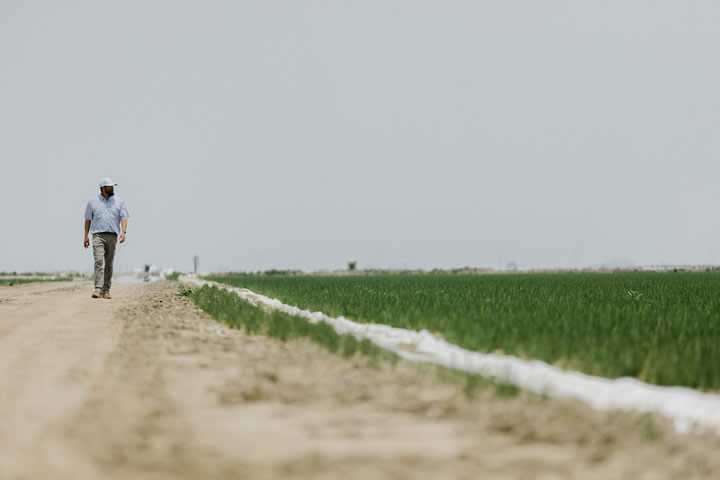AgriCapture Generates First-Ever Carbon Credits for Large Scale Rice Methane Reduction in US History

AgriCapture, a leading certifier of Climate-Friendly farming practices and generator of high integrity agricultural emissions reduction credits, announced today its receipt of the first large-scale issuance of CO2e (carbon dioxide equivalent) carbon credits generated from the rice industry in the United States. These CO2e credits are issued by Climate Action Reserve, a global carbon registry known for its rigorous issuing process, under the Soil Enrichment Protocol.
AgriCapture generates these high-quality reduction credits through the implementation and in-house monitoring of economically viable and sustainable agriculture solutions and sells them to companies seeking to offset greenhouse gas GHG emissions, reduce water usage, and support American farmers.
This batch of credits was generated by cultivating rice with practices that conserve water and reduce greenhouse gas emissions with an emphasis on methane (CH4) reduction. Methane, commonly known as CH4 and a product of conventional rice production, has a global warming potential (GWP) approximately 81 times more potent than CO2, over a 20-year period. The credits represent the equivalent of 37,000 tons of carbon dioxide emissions reduced thanks to climate-smart agriculture practices that reduce both CO2 and CH4.
"AgriCapture is committed to revolutionizing the agricultural industry by encouraging and incentivizing sustainable farming practices that improve efficiency and productivity," said Tyler Hull, president of AgriCapture. "By creating the highest quality carbon credits, we are building a financial instrument to transition U.S. farming to low carbon intensity practices."
AgriCapture's ability to collect field-specific data, quantify environmental benefits, and accurately report on emissions reductions guarantees the high quality and integrity of the carbon credits. This work also helps support American farmers by making farming a more financially viable profession.
"U.S. rice farmers are leading the charge toward a sustainable future with innovative irrigation methods and other methane and water-reducing techniques that don't impact yield. AgriCapture's method to incentivize sustainable practices has the potential to transform traditional rice farming in the United States and beyond," said Peter Bachmann, president and chief executive officer of USA Rice Federation.
Rice production represented by this credit issuance was cultivated across 455 rice fields in Arkansas, Missouri, Mississippi, and Texas with practices that also saved over 9 billion gallons of water. This provides an additional environmental and economic benefit for farmers and purchasers and helps make the production of one of the world's "thirstiest" and most consumed crops more climate friendly.
About AgriCapture:
AgriCapture is the leading certifier of Climate-Friendly farming practices and a generator of high integrity agricultural emissions reduction and removal credits. AgriCapture creates economically viable, market-based solutions for cultivating crops and conserving land while reducing greenhouse gas (GHG) emissions. AgriCapture's work helps build climate-friendly supply chains by offering farmers technical assistance and certification for Climate-Friendly crops cultivated with sustainable practices, generating carbon credits for corporations who are reducing and offsetting their greenhouse gas emissions, and empowering consumers to consciously select Climate-Friendly products.
Comments (0)
This post does not have any comments. Be the first to leave a comment below.
Featured Product

